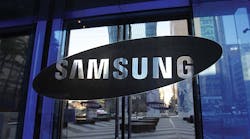Latest from Industry
Samsung Electronics Co Ltd, Seoul, South Korea, said it will close its light emitting diode (LED) lighting business outside of South Korea, scaling back what the company had identified as a key growth business just four years ago, according to a Reuters report.
The company will continue supplying LED components to OEM lighting manufacturers worldwide and developing display lighting technologies in support of its primary business lines in smart phones, tablets and other consumer products.
The pullback follows closely on decisions over the past year by Siemens to spin off its Osram lighting business and then Philips’ announcements that it would spin off LED components and automotive lighting into a separate company and most recently that it would separate off its lighting solutions business from its consumer and healthcare products and handle them as stand-alone businesses.
Global price competition has lowered profitability throughout the LED lighting industry even while the transition of the lighting market from traditional sources such as incandescent, fluorescent and high-intensity discharge lamps to LED technology is still driving rapid sales growth. That wave of growth is expected to crest fairly rapidly over coming years as lighting shifts to solid-state technologies that can last many years without replacements or even much need for maintenance.
Legacy lighting manufacturers such as Osram and Philips had the added drag of continuing to produce all those legacy technologies for a shrinking market while fighting against pricing pressure from competitors without that handicap, many of them from China. Samsung wasn’t hampered by the legacy lighting business, but a source for the Reuters report cited the small revenue stream Samsung was seeing from lighting.
In 2010, Samsung Group identified LED, rechargeable cells for hybrid electric cars, solar cells, medical devices and biopharmaceuticals as new growth drivers, but the conglomerate has yet to gain traction in most of these businesses.











